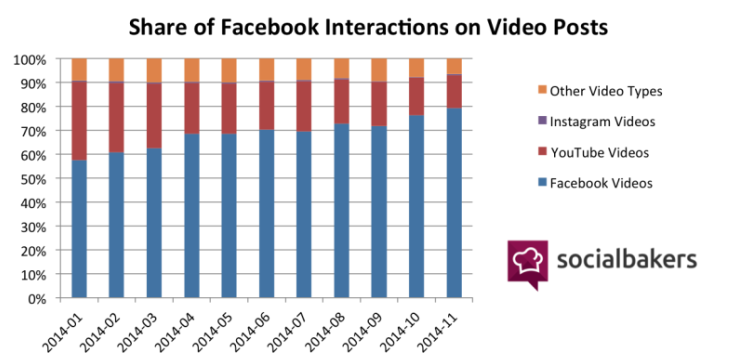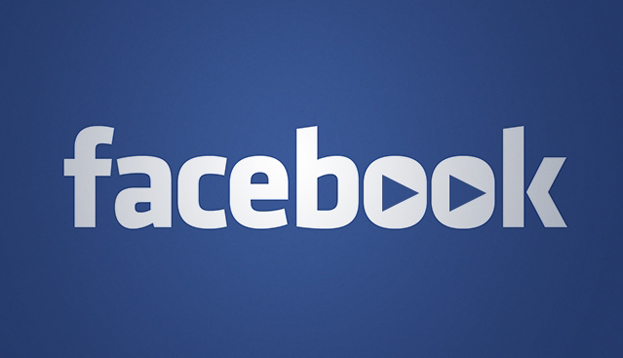Look out, YouTube: There’s a new kid in town, and its name is Facebook.
Facebook, the enduring social network known for its “Like” button more than its video capabilities, has emerged as a viable challenger to YouTube’s dominance in the world of online video.
The numbers pointing to Facebook‘s entrance into the ring speak for themselves; native videos posted to the site have enjoyed increasingly desirable engagement rates for brands, while rates for videos originally posted to YouTube and similar sites continue to decline. A recent Socialbakers study gave native Facebook videos an 80 percent share of total interaction across all video posts.

Brands appear to be taking note of Facebook videos’ steadily rising engagement rates, embracing the social network for posting original content like never before; the same Socialbakers study noted that November marked the first-ever month in which Facebook page owners uploaded more videos directly to the site than they’d shared from YouTube.
Apple was among the brands benefitting from this tectonic social shift, as their recent Facebook-focused ad campaign greatly outpaced its engagement figures on YouTube.
Greg Hounslow, emerging media advisor for WestJet — a company that recently courted its own Facebook success with their Christmas Miracle: Spirit of Giving video — sees the news as a mixed bag. “Where Facebook benefits over YouTube is that everybody has an account, whereas not everyone is logged into their YouTube account. That’s a key piece of where Facebook’s advantage is on engagement right now.”
On the other hand, Hounslow is quick to point out differences in the ways Facebook and YouTube count their “views;” autoplay-enabled Facebook notches a “view” after three seconds spent watching a video, while YouTube requires that users actually click on a video. “The YouTube view is more valuable for now […] A huge percentage of people are dropping off after a very short amount of time as they scroll through their feed. Meanwhile, if you arrive at a YouTube video, you’re probably in a dedicated video-watching area, so retention tends to be a lot higher.”
Though Facebook obviously won’t become the kind of one-stop shop for original programming, organic videos, and branded content YouTube is famous for being overnight, it is clear that the Google-owned media property no longer dominates its realm to the point of exclusivity. “YouTube is still a massive, massive part of our video strategy,” Hounslow noted, “but you can’t ignore the native Facebook player.”

